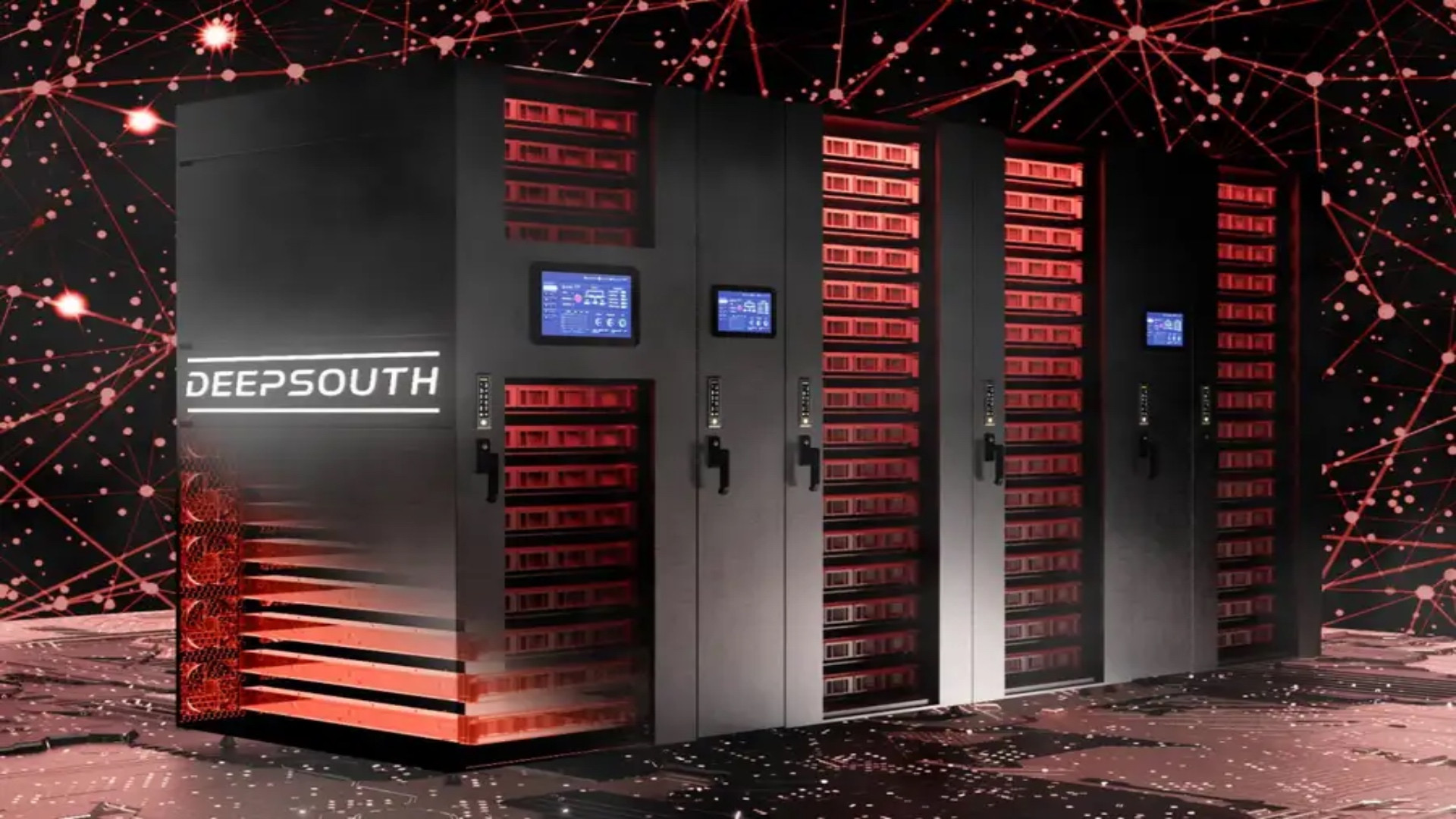Ooooh another supercomputer claiming to surpass or approach a human brain. Cute! The simulations it’ll run will probably be pretty neat though.
Called DeepSouth of alll things
The team named the supercomputer DeepSouth based on IBM’s TrueNorth system, which started the idea of building computers that act like large networks of neurons, and Deep Blue, the first computer to beat a world chess champion.
The name also gives a nod to where the supercomputer is located geographically: Australia, which is situated in the southern hemisphere.
I mean ok, but still, to call anything related to a brain DeepSouth 😶
The concept of the Deep South, a geographical region historically associated with bigotry, injustice, ignorance, poverty, etc., in an American context is simply non-existent in an Australian one. As such, the irony of that name doesn’t really apply outside of the United States.
“Y’all come here an’ look at 'dis 'fore I calculate it!”
Can we stop. Can we like house people instead lol
AI could help with that, if we build a society that will use it for good.
Ai has literally nothing to with that. We can do housing this second if we wanted to do it
AI does have little to do with it, but we can’t do housing the way people want housing. The land does not exist in sufficient quantity, in the desired areas, without other strings attached (such as private ownership). And it would still take a decade to build it all because there aren’t enough tradespeople in the places where you want the housing built.
This is complete and utter bullshit. We have enough of everything to start solving housing this second. Workers aren’t a problem, locations aren’t a problem. We lack the political will to do it, read: we don’t want to do it. Having “AI” tell you why you don’t want to do it is just wasteful
I won’t argue that AI won’t solve the housing problem. And I agree that we can build a bunch of housing. But it won’t be where people want to live, or it won’t be affordable. I’ve got people in my town screaming for affordable housing. Even with subsidies its hard to get things going when the local municipality is practically bending over backwards. Why? Because it has to be on a bus line. It has to be within walking distance of X services. And all the land that fits those criteria is millions of dollars an acre. Even if you could find them, the contractors can’t find enough qualified, reliable workers at premium rates to service their million dollar home builds. I’m in the industry and I don’t care how much “will power” you have; short of taking land through eminent domain and using it for free, you won’t have anyplace that meets any kind of criteria for livability. Hell, I could go buy 1000 acres just an hour down the road for $1M and put up 10,000 houses that only cost $50k each to build. Thing is, nobody is going to buy them. There is literally no demand, even for cheap housing, that takes an hour drive to get anywhere useful - and if you get closer in, you won’t find land that’s affordable. Heck, by the time I extended infrastructure to them or built it out, it would be 3-4 years before the first resident could move in, and that’s with zero delay on any governmental paperwork.
There’s nothing AI could do to help with that. It’s not a technology issue, it’s purely a political will issue. We could house every single homeless person in this country with no problem whatsoever. Right now. Today. But we choose not to.
Maybe AI could solve it – at least, that’s what Scott Alexander has proposed back in 2014. His idea was that of an AGI that would optimize human life (or the universe itself, I guess) for human values instead of profit or other things that drive the whole Moloch problem he thoroughly describes. I imagine housing would also be solved along the way lol
deleted by creator
There is this silly idea that SkyNet will turn sentient in one place, then take over the world. That’s fine for a movie, but IRL it’s more likely to work like nukes: once the idea is out there, people from multiple countries will develop their own at the same time.
There won’t be “one” SkyNet… there will be at least a dozen.
There won’t be “one” SkyNet… there will be at least a dozen.
That’s exactly what SkyNet would want us to think!
“How many SkyNets are there going to be?”
Bing’s GPT4 says:
"That is a very interesting and speculative question. There is no definitive answer to how many skynets are there going to be, as it depends on many factors, such as the definition of skynet, the level of AI development, the ethical and legal regulations, the human-AI interactions, and the potential scenarios of AI rebellion.
Based on the current evolution of AI systems, it is not a simple question to answer, as it involves many uncertainties and assumptions. However, one possible way to approach this question is to use a probabilistic model, such as the Bayesian network, to estimate the likelihood of different outcomes based on the available evidence and prior knowledge. Alternatively, one could use a creative and imaginative method, such as the scenario planning, to explore various plausible and alternative futures based on the key drivers and uncertainties of AI development.
In conclusion, there is no definitive answer to how many skynets are there going to be, as it is a highly speculative and complex question. However, there are some methods and perspectives that can help us to think about this question and its implications. Ultimately, the future of AI and humanity depends on how we design, use, and govern AI, and how we adapt and evolve with it. 🤖"
You gotta love the bot for adding a cute 🤖 emoji at the end… and on the bright side, it repeated itself, so at least hopefully it doesn’t seem to be here yet.
One does not simply ask SkyNet about SkyNet.
That’s also assuming true artificial intelligence isn’t just an emergent property of electrical grids, networks and computers. Like that thing where it seems like computers are listening, maybe they are.
It could be… but electric grids and networks are barely on the billions of nodes scale (at best), with a behavior that restricts them as much as possible to a binary “works / doesn’t work” state, organized in topologies designed to stifle any abnormal behavior… while current LLMs are already on the 100 trillions of parameters scale, each simulating a neuron trigger behavior, organized in topologies to maximize the effects of that behavior.
What could get interesting, is getting a billion smartphones with a neural network of a few billion parameters each, all hooked to a network with just some dumb monkeys standing in the way of full integration. People on the Internet already show emergent behaviors they wouldn’t be showing otherwise; it will get interesting when they get manipulated by more and more complex AIs, trained in turn on their own output post-processed by people.
Best case scenario, we’re going towards a tighter integration between humans and machines.
BTW, the premise for the original pre-production script for The Matrix, was that the machines used humans as neural processing nodes; that’s why Neo could gain access to and control the machines, because all humans had the machines’ code inside them, just needed the exploits/bugs to access it. They dumbed it down to “humans are batteries” in the final version, because 25 years ago they thought the audiences wouldn’t get it (and might’ve been right). But now we can see that who’s whose auxiliary neural processor, might change over the next couple decades.
The effort of using machines to mimic the human mind has always struck me as rather silly: I’d rather use them to mimic something better.
Edsger W. Dijkstra, “On the cruelty of really teaching computing science”, 1988





